The Gender Specific Discipleship model is utilized by the Baptist Collegiate Ministry at the University of Tennessee at Martin. The ministry has utilized this discipleship model for the men’s ministry over the last 6 years. The model was adapted for the women’s ministry and has been used the past 4 years. The Men’s Discipleship program is called ManUp. The Women’s Discipleship program is called Radiant.
The Gender Specific Discipleship model spans the whole school year (August to April). The Men and Women Discipleship Coordinators meet with the College Minister to develop the plan for the upcoming semester.
Together they determine the following:
1) LifeGroup Leaders-Students apply to serve as a LifeGroup Leader. Same gender students are selected and paired up to lead a LifeGroup. Leaders are equipped to lead a LifeGroup during a three (3) hour training at the beginning of each school year.
2) Focus for semester (themes, scripture passages, etc)
3) Recruit speakers for semester-Speakers are informed of the focus for their week and asked to provide conversation questions to be used in the Small Group Time. Speakers are typically local pastors, pastors’ wives, missionaries, professors, or LifeGroup Leaders. Additional resources used in previous years included a video series in place of the speaker.
Our approach to this Discipleship model is designed where both the Men’s LifeGroup time and Women’s LifeGroup time meet on a specific night of the week with a LifeGroup Leader’s Meeting, Large Group Gathering, Small Group Gathering. An additional element is a One-on-One time between LifeGroup Leaders and a LifeGroup member during the week, if possible.
Elements of the Gender Specific Groups – Both the Men and Women Discipleship program use the following elements for effective discipleship:
• LifeGroup Leader’s Meeting –(30 minutes) before the LifeGroup Gathering begins, LifeGroup Leaders meet for a devotional, sharing of thoughts, and prayer. The LifeGroup Leaders usually gather around the speaker to pray over them.
• Large Group Gathering-(30 minutes) The meeting begins with a Welcome/Announcement time. Then, for twenty to twenty-five minutes the scheduled speaker shares the focus for the night. Programmed as well as unprogrammed time: As a part-timer you may have a noon meeting or a Bible study on campus. These times are important. In addition, unprogrammed time to meet new students and interact with students you already know in an unstructured setting is also crucial. Grabbing lunch or coffee on campus is a great way to do this.
• Small Group Time-(30 minutes) LifeGroups transition to the small group time. The groups scatter all around our ministry building. During the small group time, LifeGroup leaders guide the discussion and include accountability, Scripture memory, and prayer time.
• One-on-One Times-(30 minutes) LifeGroup Leaders are asked to meet each week with their group members. Since two students serve as LifeGroup Leaders for each LifeGroup, LifeGroup Leaders split the group between them. One-on-One meetings allow for specific investment in students who show a desire to grow deeper in their faith.
ADVANTAGES OF USING THE GENDER SPECIFIC DISCIPLESHIP MODEL
Since implementing the Gender Specific Discipleship Model, our college ministry has experienced a variety of benefits.
• Older students are discipling younger students. The synergy from this approach has created strong, Godly, accountable relationships.
• Current LifeGroup Leaders are investing in potential LifeGroup Leaders for future years. In previous years, we struggled to find individuals to help with the discipleship aspect of our ministry. The power of spiritual modeling and group devotion feeds maturity into the interested future leaders and helps them understand what is expected from LifeGroup Leaders.
• Current BCM Ministry Leaders are investing in potential BCM Ministry Leaders for the future. Many of our LifeGroup Leaders are also members of our BCM Leadership Team. These students model devotion and commitment to reaching their campus. Those who show an interest in serving as a BCM Ministry Leader grasp the impact of serving in a multitude of ways in our ministry.
• A variety of group dynamics are experienced. Each person has a preference of effective discipleship. Through the Gender Specific Discipleship Model, three different dynamics are experienced by the student participant: Large group dynamics, small group dynamics, and one-on-one dynamics. What works for one person doesn’t always work for another person. With this approach, a student participant can experience the spectrum of possibilities and benefit from the one that best facilitates discipleship.
• Openness to inviting others to attend is experienced. When some groups study a specific book together, the group often becomes closed off to other people joining. New attendees have no context to join in the conversation. This discipleship model allows for new students to join throughout the year.
• Encouragement towards brotherhood and sisterhood as they pursue Christ-likeness and authentic faith. We have seen great cohesion in each of our men’s groups and women’s groups. The fact that they are journeying together through their college years has bolstered the spiritual walk for most of those involved in discipleship.
• Men understand men and women understand women. Let’s face it: some conversations are best kept within the same gender circle. The benefit of gender specific groups allow for a greater level of accountability, discussion, and group commitment.

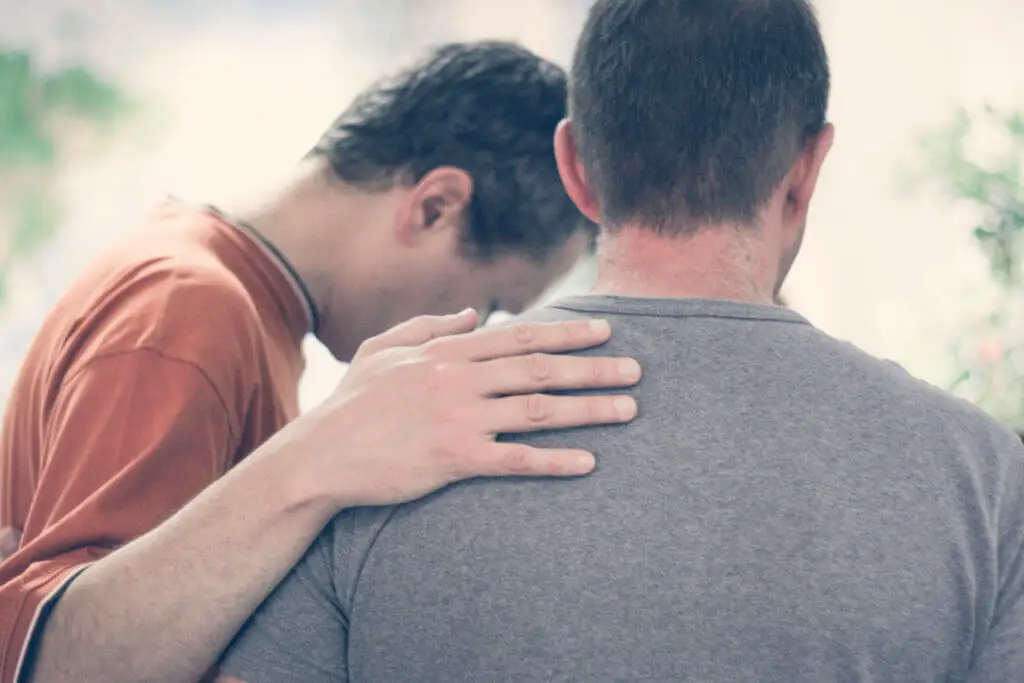
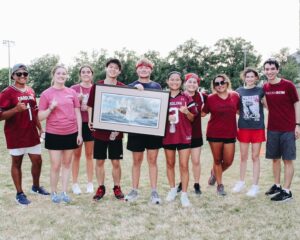
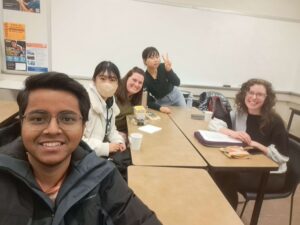
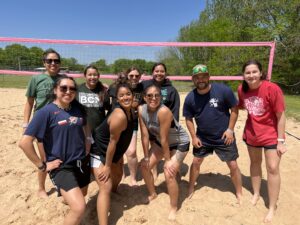
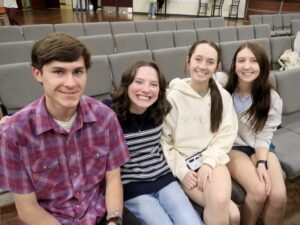
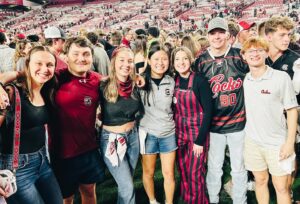
 by
by